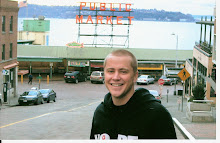Wow where has the time gone? I left September 2nd for a financial literacy training with AEE in Musanze, went to my in-service training (IST) the week after that, and followed those up with the post-conflict workshop in Uganda. Now I’m back home, slightly worn out form living out of my backpack, but ready to get back to daily life.
I won’t bore you with the minutia of the financial literacy training, because it was very detailed and in Kinyarwanda so I’m still not even sure of all of the content.
My IST was not only a chance hear stories of success and challenges from my fellow PCVs, but also a chance to see beautiful Lake Kivu. We were spoiled with great food, great views, and a chance to relax as a group while learning about possible funding opportunities, how to design and manage a project, and last but not least, how to report what we are doing to Peace Corps. On our second to last day, we took a group trip out to Amahoro Island, about 20 minutes from our hotel by boat. As small as the island was, it came equipped with a small restaurant and bar, a volleyball court, and a short trail which provided “hikers” with the chance to see the single monkey living on the island. While all that sounded exciting, my friend Jarod and I took to the water to test our lungs and our breast/crawl strokes by swimming to a nearby island. We made it there and back, but probably won’t be testing Michael Phelps anytime soon.
After IST, I made a quick trip home to get new clothes and then it was off to Entebbe, Uganda for a week-long workshop on Peace Corps’ programming and training practices in post-conflict countries. We hit the ground running from day one with broad questions of how to train a PCV to work in a post-conflict country, all the way down to the small details of what resources should be included when inviting someone to a post-conflict country. From regional advisors, to country directors, to volunteers, all voices were heard and all ideas were up for debate. The “Rwandan perspective” proved challenging for many of the ideas that people presented and continually became the last hurdle for ideas to be post-conflict worthy. For instance, when discussing how PCVs integrate into the local community, one may think conversations about family history, livelihoods, and education would be commonplace. What happens though when these subjects are not culturally appropriate to discuss or might go against government policy as can be the case in Rwanda? In addition, how do you convince a community that has been receiving handouts of food, medical supplies, and shelter to accept a volunteer who doesn’t bring any of these things outright, but merely wants to work with you on achieving these things by yourself? Post-conflict countries are some of the most aid-saturated environments there are, adding the challenge of integrating into one of these and convincing the community you are there to work with them brings forth a truly different Peace Corps experience.
In the end the discussions were challenging and thought-provoking, and probably could have lasted for another week or so. Time outside of the conference was spent enjoying the views of Lake Victoria, watching CNN World News, and making sure monkeys didn’t come into the conference room to steal food. One of the mornings, I woke up early to access the high-speed internet in the conference room, only to be distracted by a curious monkey who relentlessly tried to get his little hands on the mints on the conference room tables. I managed to close most of the doors, but apparently missed one of them, which I later realized by the same monkey jumping up on the table across from me, shoving candy (wrappers included) into its mouth. As I got up to scare it away, a hotel employee came running around the corner wielding a chair over his head. I’d like to think my clapping and “Hey Monkey!” scared it off, but it was most likely the metal chair that frightened the little candy thief.
It has been a great three weeks, but now it’s time to get back to work and reality…whatever that may be.
Subscribe to:
Post Comments (Atom)


No comments:
Post a Comment